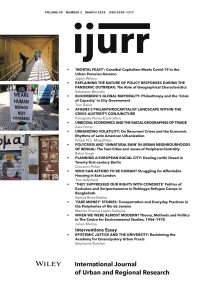Bloomberg Philanthropies—the philanthropic organization of multibillionaire, CEO and former mayor of New York City, Michael Bloomberg—has become a palpably influential node in global networks of urban policy knowledge generation and mobility. This article examines the formative conditions, scope and operations of Bloomberg’s philanthropically funded complex of urban policy influence. It begins by outlining Bloomberg Philanthropies’ ecosystem of urban initiatives, which offer funding, technical support and entry into communities of practice for city government partners. It then traces the styling of Bloomberg’s New York City mayoralty into a symbol-turned-model of effective administration and its alignment with Bloomberg Philanthropies’ efforts to address the ‘crisis of capacity’ in city government. From there, the article analyses the formation of partnerships between Bloomberg Philanthropies and city governments. We show how Bloomberg Philanthropies occupies a powerful meta-governmental position: as a city-administration-at-large, it orchestrates a global-institutional field that promotes and resources the implementation of technocratic, superficially pre-political ‘best process’. But its relevance depends on harmonizing its agenda with the current desires and practical possibilities of city government. We argue that these asymmetric but interdependent relationships are important for understanding Bloomberg’s global mayoralty and the general practice of philanthropic meta-governance it exemplifies.
Details
Written by:
Tom Baker, Alistair Sisson, Pauline McGuirk, Robyn Dowling, Sophia Maalsen
Digital Object Identifier (DOI)
https://doi.org/10.1111/1468-2427.13307
About DOI

